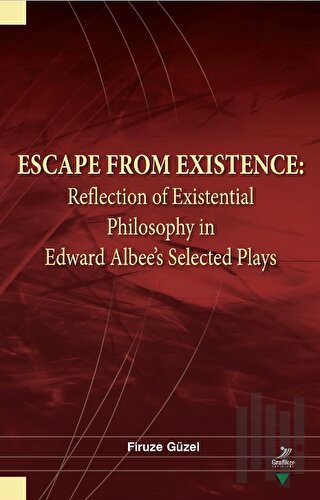
The questions about existence reveal themselves in every segment of art, literature, and philosophy. The main current of philosophical thought, however, is surely existentialism, which has become widely popular after WWII. While existential themes and questionings are reflected in numerous literary works in every genre, theatre grasps attention with respect to its structure, particularly The Theatre of the Absurd with its genuine interest in the human condition. In the United States, Edward Albee has been the most prominent representative of absurd theatre under the influence of existentialism and European absurdist drama. For that regard, this book aims to make analyses of Edward Albee’s selected plays, “The Zoo Story”, “Who is Afraid of Virginia Woolf?”, “A Delicate Balance”, “The Lady from Dubuque”, and “The Goat, or Who is Sylvia?” within the framework of existentialist philosophy. That is why the first chapter introduces the ideas of the most established existential philosophers, whereas the second chapter illuminates the history and the characteristics of The Theatre of the Absurd. In the last chapter, the expression of existential concepts such as alienation, search for meaning, freedom, choice, responsibility, and authenticity are discussed through structural and thematic perspectives in the aforementioned plays.
The questions about existence reveal themselves in every segment of art, literature, and philosophy. The main current of philosophical thought, however, is surely existentialism, which has become widely popular after WWII. While existential themes and questionings are reflected in numerous literary works in every genre, theatre grasps attention with respect to its structure, particularly The Theatre of the Absurd with its genuine interest in the human condition. In the United States, Edward Albee has been the most prominent representative of absurd theatre under the influence of existentialism and European absurdist drama. For that regard, this book aims to make analyses of Edward Albee’s selected plays, “The Zoo Story”, “Who is Afraid of Virginia Woolf?”, “A Delicate Balance”, “The Lady from Dubuque”, and “The Goat, or Who is Sylvia?” within the framework of existentialist philosophy. That is why the first chapter introduces the ideas of the most established existential philosophers, whereas the second chapter illuminates the history and the characteristics of The Theatre of the Absurd. In the last chapter, the expression of existential concepts such as alienation, search for meaning, freedom, choice, responsibility, and authenticity are discussed through structural and thematic perspectives in the aforementioned plays.
| Taksit Sayısı | Taksit tutarı | Genel Toplam |
|---|---|---|
| Tek Çekim | 86,40 | 86,40 |










